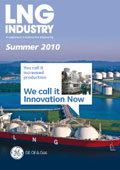Editorial comment
The adage is that ‘reputation is the most important thing that a person owns’. But equally, you can’t ever fully control what people think of you, despite your best efforts to influence.
Register for free »
Get started now for absolutely FREE, no credit card required.
BP has been trying to salvage some control over its reputation by purchasing sponsored links appearing at the top of google and yahoo search pages, buying keywords such as ‘oil spill’ in an effort to direct information or opinion seekers to its own website first. It has also considered trying to close down a fake Twitter page that ridicules the company’s positive PR efforts. BP has also controversially appointed Anne Womack-Kolton (former press officer for Dick Cheney) as the head of BP America’s media operations. The result of all these actions is that the company has been criticised by the public for spending unnecessary time and money on managing its reputation rather than plugging the hole in the ocean.
BP’s ethical reputation has been awarded a grade ‘E’, the lowest grade possible, by Covalence, an organisation that monitors the ethical standing of large organisations.
Tony Hayward has been accused of ‘spin’ in disputes with scientists over the amount of oil that was actually gushing from the well, and in response to his now infamous exclamation of “I want my life back,” he is now being referred to as one of the most hated men in America.
Another person who has had his fair share of reputation ups and downs is Hollywood star Kevin Costner. On the back of what was at the time (unjustly!) cited as a reputation-obliterating Waterworld, Costner was inspired to fund a company that manufactures, “The most effective and efficient tool for cleaning up oil spills that you have probably never heard of,” in Costner’s words as he presented his solution to US Congress in Washington DC on 9 June. But unfortunately, Capitol Hill has been less hospitable towards Britain this week. If, in America’s eyes, Costner is shaping up as the ‘Robin Hood’ amid the crisis, is the role of the villainous ‘Sheriff’ enduring as a traditionally British one? Indeed it is, according to some interpretations of Obama’s ‘anti-British’ rhetoric, which included referring to BP as ‘British Petroleum’ – BP’s somewhat antiquated corporate identity. However, the US Ambassador to London has since assured, “While it might seem a bit undiplomatic in terms of the words, trust me, it had nothing to do with the fact it was British or American. It was the fact it’s a problem.”
BP’s reputation will be badly affected for a long time to come. However, reputations shift, and blame is reapportioned. We should never forget that the LNG industry’s reputation, although strong to date, is as vulnerable as those in any other areas of the oil and gas industry.

